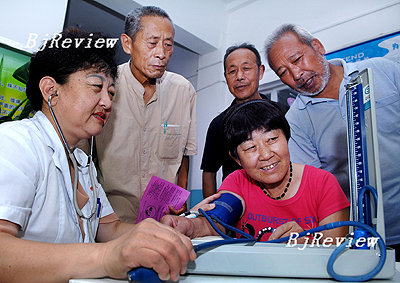
Wu Wenyan, Vice Chairman of Beijing's Bureau of Civil Affairs, said in a statement recently that if inflation pushed a family's average monthly expenditure up by around 25 yuan, the family could then avail of an emergency aid plan formulated by the government.
Wu made this announcement early this month after deputies to the National People's Congress in Beijing made surveys on how the social security and welfare systems affect disadvantaged people. In Beijing recently, prices of pork, egg and other commodities rose by a fairly large margin, a blow to low-income families. Wu elaborated by stating that if the prices of essential daily commodities -- for instance clothes, food, housing and energy (water, gas and electricity) -- rose enough to push a family's average monthly expenses up by 23.5 yuan, Beijing's Bureau of Civil Affairs would launch the emergency aid plan to send temporary subsidies to the disadvantaged family up to three months after the price returned to the usual level.
Wu added that the current prices floating in Beijing did not greatly affect low-income families, whose monthly expenditure has risen by an average of 17.1 yuan. Therefore, he concluded, there was no need to launch the emergency aid plan as of now in accordance with the statistics.
(Source: Beijing Times, translated by KANG TAIYI) |
